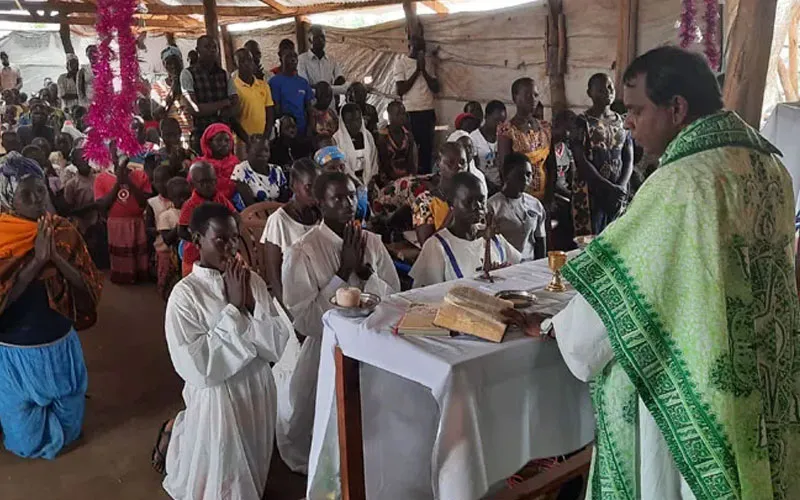Gulu, 11 July, 2021 / 7:30 pm (ACI Africa).
Uganda has continued to implement stringent measures to contain the spread of COVID-19 amid a spike in infections and related deaths, a situation that has terribly impacted the wellbeing of refugees who were already struggling to survive in the East African country.
Fr. Lazar Arasu, the Director of Palabek Refugee Settlement that provides a home to thousands of refugees, most of them from neighboring South Sudan tells ACI Africa that with the lockdown in Uganda, the country’s foreign exchange earning sectors such as tourism, agriculture and food processing units are almost in the brink of collapse.
He says that every sector in the country is overwhelmed by the pandemic and that locals who relied on agriculture for survival are counting losses as most of the country’s transport services remain suspended.
“With this background in mind, it is painful to describe the state of refugees who are in precarious situations. From the time Coronavirus hit Uganda, food ration given to the refugees were gradually reduced to 40 percent, which means, today a refugee receives about 5 kilograms of maize flour, 3 kilograms of beans, half a liter of cooking oil and a few grams of salt. The supply of other non-food items was completely stopped,” Fr. Arasu says in a report shared with ACI Africa on Friday, July 9.
Reports indicate that Uganda, the Democratic Republic of Congo (DRC), Namibia, Zambia, Rwanda and Tunisia have been among the worst hit by a recent resurgence in infections in Africa.








